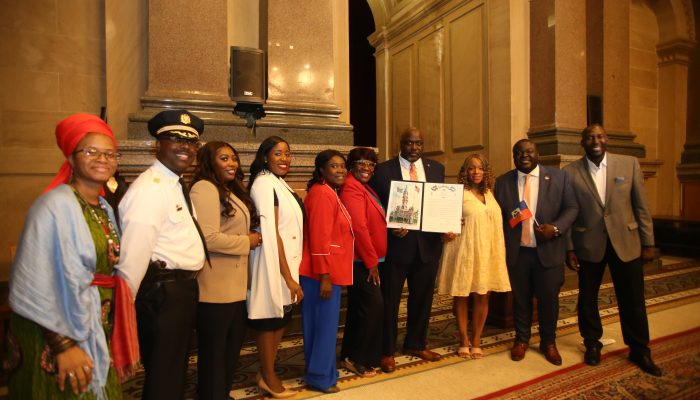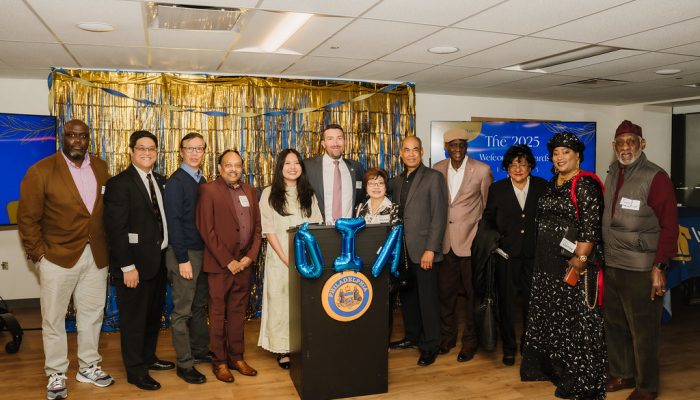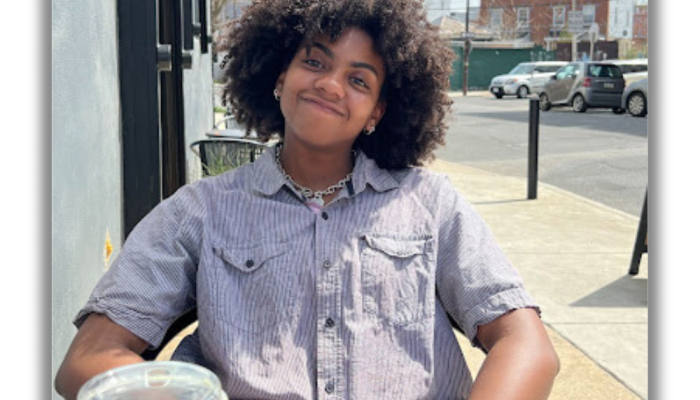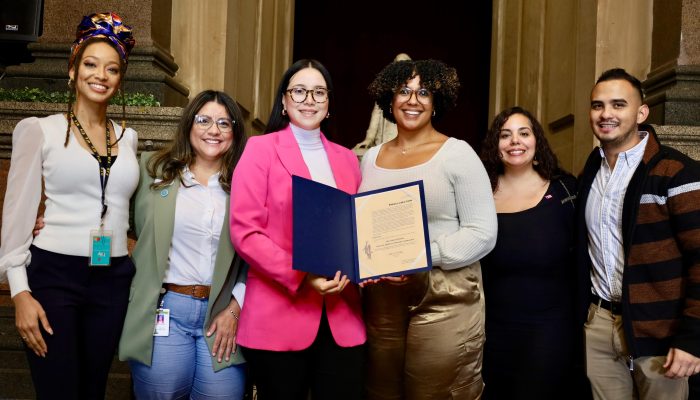Haitian Heritage Month is celebrated by the Haitian diaspora around the world to commemorate Haitian history, heritage, and culture. The month of May festivities are a carryover of the island’s Haitian Flag Day, a national holiday dating back to the early 1800s when the island gained its independence. Haitian Heritage Month celebrations include parades, cultural gatherings, celebration of the arts and recognition and collaboration with government officials across the world. In honor of Haitian Heritage Month, the Office of Immigrant Affairs interviewed Rev. Jennifer M. Joseph, a community leader on her identity as a Haitian American in Philadelphia, her work in empowering immigrant communities, and her efforts to preserve and uplift Haitian culture and heritage through faith, advocacy, and service.
Can you share your personal journey and what inspired you to become so involved in Haitian community organizing?
My journey is rooted in love—love for my people, my culture, and the legacy of resilience passed down from generations before me. As a Haitian-American born and raised in Philadelphia, I grew up navigating the tension of being “ni ici, ni là-bas”—not fully from here, not fully from there. I experienced both the pride of my heritage and the pain of its misunderstanding. That double identity birthed a passion in me to bridge gaps and elevate our stories. My involvement in community organizing was not a choice, but a calling to honor the sacrifices of our ancestors by creating spaces where Haitian voices are not only heard but valued.
Haitian Heritage Month celebrates the richness of Haitian culture. In your work, how do you emphasize the importance of preserving and promoting Haitian traditions, values, and history?
Every initiative I lead is grounded in cultural pride and historical truth. Whether I’m curating events, speaking publicly, mentoring youth, or organizing faith-based gatherings, I make it a point to highlight my Haitian cultural through language, music, food, faith, and revolutionary history. We are the first free Black republic, a fact that should never be forgotten.
As a leader within the Haitian community, what are some of the biggest challenges you’ve seen your people face?
Our community continues to face systemic neglect, anti-Black racism, immigration barriers, and internalized stigmas about our own identity. I’ve seen how trauma from instability can lead to disconnect or survival-mode living. We often have to fight twice as hard to prove our worth and gain access to opportunities. Yet, despite these challenges, we are resilient. My role as a leader is to ensure that resilience doesn’t come at the expense of rest, healing, or collective joy.
What is the most rewarding aspect of your work in Haitian community organizing?
The moments when someone says, “Thank you for seeing me” or “I finally feel proud to be Haitian” makes everything worth it. It’s incredibly rewarding to watch young people embrace their roots with no apology or to witness elders light up when they hear their native tongue spoken on a public stage. I live for the moments when our community comes together across generations, financial status, and migration stories to celebrate what unites us—our Haitian identity.
As we reflect on the rich history of Haiti and its diaspora, what do you hope for the future of Haiti and the Haitian-American community?
I hope for a future where we are no longer defined by what we lack, but instead, are celebrated for all that we are and all that we’ve contributed. For Haiti, I pray for sustainable development rooted in justice and freedom. For the Haitian-American community, I envision a future of greater political power, economic empowerment, and preserving culture. We are not just survivors, we are visionaries, healers, builders, and leaders.
How can members of the Haitian community, both in the U.S. and abroad, further support and uplift each other in their shared journey of progress and prosperity?
Unity is our superpower. It’s how we were able to become the first Black Republic. We must see each other as allies. Support can look like mentoring the next generation, investing in Haitian-owned businesses, advocating for equitable immigration policies, or simply showing up for each other’s events and milestones. It also means being intentional about collaboration like combining our resources, sharing our knowledge, and building sustainable systems that uplift us as a whole. Progress isn’t a solo journey. It’s something we do together, in community, with love and commitment.
As we celebrate Haitian Heritage Month, let us remember that honoring Haitian culture is not just about looking back—it’s about building forward. Rev. Jennifer M. Joseph’s words remind us that resilience, pride, and unity are the foundation of progress. May we continue to uplift Haitian voices, preserve cultural traditions, and create space for future generations to thrive with dignity and purpose.




